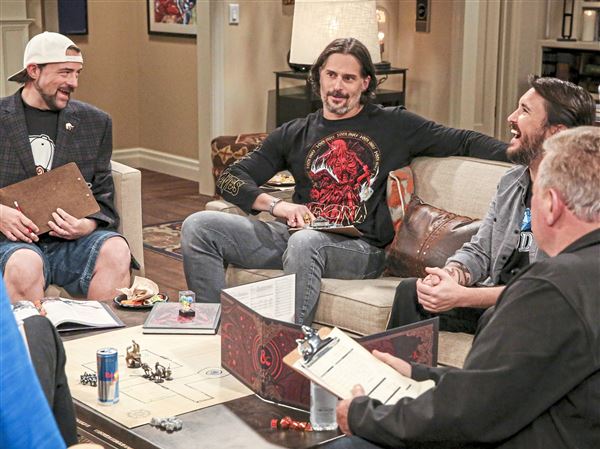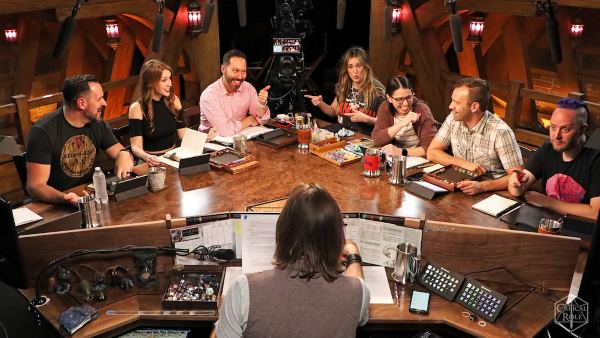In the realm of Dungeons and Dragons, there exists a pivotal figure, a storyteller, and a guide. Who weave together narratives, creates worlds, and oversees the adventures of the players. This master of ceremonies is known as the Dungeon Master (DM). (Sometimes referred to as Game Master or Keeper). A title that carries immense responsibility and requires a unique set of skills. In this post, we explore the role of Dungeon Master, what they do, and the skills they need to excel in this captivating position.
For those discovering this blog without any RPG experience I want to explain this role. It becomes important as we progress in this journey of D&D at work. A skilled DM is essential to running learning RPGs in the workplace. Additionally, the attributes of a good DM mirror many of those displayed by great leaders.
What is a Dungeon Master?
At its core, a Dungeon Master is the creative force behind a tabletop roleplaying game. The DM serves as the game’s referee, narrator, and facilitator. Orchestrating the unfolding story, designing the world and its inhabitants. While simultaneously mediating the actions and decisions of the players’ characters is juggled at the table. Many believe the DM is in opposition to the players. But nothing could be further from the truth. Championing the players actions, rooting for them to win and encouraging their creativity is all part of this diverse role.
Unfortunately seeming complexity of the role puts many people off. As such, DMs are much harder to find than players. However, in my opinion there is no better place to hone your leadership skills, while simultaneously facilitating engaging and exhilarating experiences for your friends. Let’s dig into the duties and skills that this role requires.
The Duties of a Dungeon Master
- Worldbuilding and Narrative Design: One of the primary responsibilities of a Dungeon Master is crafting an immersive and engaging world for the players to explore. This involves designing landscapes, cities, dungeons, and populating them with unique characters, creatures, and lore. The DM establishes the setting’s tone, atmosphere, and overarching story, while also leaving room for player agency and improvisation.
- Rule Arbitration: Tabletop roleplaying games operate on a set of rules and mechanics that govern the gameplay. The Dungeon Master ensures that these rules are understood and applied correctly, acting as the final authority on interpreting and enforcing them. A skilled DM strikes a balance between adhering to the rules and allowing for flexibility to keep the game flowing smoothly.
- Non-Player Characters (NPCs) Management: NPCs are the inhabitants of the world created by the Dungeon Master. As the players interact with these characters, the DM must portray them convincingly, giving them distinct personalities, motives, and behaviors. This requires the ability to improvise dialogue and make quick decisions, embodying a multitude of unique personas.
- Encounter Design and Balancing: The DM is responsible for designing encounters that challenge the players, including combat encounters, puzzles, and social interactions. They must consider the capabilities and preferences of the players’ characters while maintaining a level of difficulty that keeps the game exciting without being overwhelming. Balancing encounters requires careful planning and adapting on the fly to keep the game engaging.
- Improvisation and Adaptability: No matter how meticulously a DM plans, players will inevitably surprise them with unexpected choices and actions. The ability to think on their feet, adapt the story and encounters, and seamlessly incorporate unforeseen events is a crucial skill for a Dungeon Master. Improvisation adds an element of surprise and unpredictability, making the game dynamic and captivating.

Skills of a Masterful Dungeon Master
- Storytelling: A Dungeon Master should possess a creative and vivid imagination, capable of spinning captivating tales and engaging narratives. The ability to craft a compelling story that enthralls the players is fundamental to the role.
- Communication: Strong communication skills are essential for a Dungeon Master. They need to clearly articulate descriptions, engage players in roleplaying, and provide guidance during gameplay. Effective communication helps set the tone, convey information, and maintain a positive and inclusive gaming experience.
- Organization and Preparation: A successful Dungeon Master invests time and effort in preparation. From creating detailed notes and maps to organizing game sessions and tracking campaign progress, being organized ensures smooth gameplay and coherent storytelling.
- Patience and Flexibility: Players may approach the game with varying levels of experience and playstyles. A DM must possess patience and the ability to adapt to different player needs, ensuring everyone has an enjoyable experience. They should be open to feedback, willing to adjust their plans, and capable of handling unexpected situations gracefully.
- Problem Solving: A Dungeon Master encounters various challenges, such as resolving conflicts between players, designing puzzles, or finding solutions to unexpected outcomes. Strong problem-solving skills help navigate these situations, finding creative and fair resolutions that maintain the flow of the game.
Final Thoughts
The role of a Dungeon Master is a unique and rewarding one, demanding a diverse skill set and a passion for storytelling. Their ability to create immersive worlds, guide players through thrilling adventures, and adapt to unexpected twists and turns is what makes tabletop roleplaying games an unforgettable experience. Whether they are crafting intricate narratives or facilitating epic battles, Dungeon Masters are the maestros behind the scenes. The conductors of the magic that unfolds around the gaming table.
Look at the two lists again. But instead of thinking in game terms use a leadership lens. Most of the duties and skills directly port into those associated with strong leaders. I would argue that honing your DM skills also lets you refine your leadership skillset. But I think that topic will be the subject of a future post.



